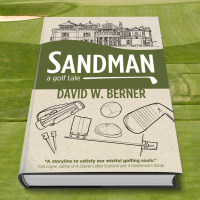
[caption id="attachment_808" align="alignleft" width="152"] photo c. Grizelda Holderness.[/caption]
photo c. Grizelda Holderness.[/caption]
I pay a lot of attention to the arts industries as a whole. The comparisons are interesting, to say the least. Music and literature have been plunged into chaos by the internet with creators finding it really hard to make a living. At the same time certain kinds of film seeing to be doing ok (but I am utterly turned off by almost everything that comes out at my local cinema) while smaller scale film making is having a bit of a renaissance. According to Grayson Perry, the fine art world is thriving, and awash with cash.
Is it just down to the internet? Is it because amazon has killed off high street book and music shops, and ebooks have undermined paper, and everything is free online that music and books are struggling industries while fine art thrives, away from the madding crowd, in the insulated safety of its galleries?
Or could something else be happening?
New art is cutting edge. Ground breaking. Shocking. Dramatic. Unexpected. New art is new. It tries hard all the time to be nothing like any art you have seen before. It is artist led, and if you told artists they could only do professional work in the style of existing schools, they would laugh at you until there was moisture involved. Or they’d kill you and use your body parts for an instillation with a witty title.
In the world of books, the exact opposite has happened – Neil Gaiman was told Coraline was unpublishable when he wrote it, because it wasn’t enough like anything else. Books are to conform to genres, to be like something else, to be familiar. The agenda for what will be published is set by houses, not by authors, and in the publishing house the accountant and not the editor often has the final say. Books are about giving you what’s already familiar, safe, expected. Ground breaking is a dirty term that will send publishers running away, all too often. In music, with genres and record labels, similar things are happening. Mainstream film is dominated by reboots and remakes and the film of the book, but somehow that still makes money even though it really doesn't deserve to.
Is the financial mess in the publishing and music industry because people can get it for free online, or is it because the industries themselves are stagnant, churning out the familiar and unremarkable? Once upon a time authors were cutting edge thinkers and social commentators. Once upon a time, they made the genres we have now by daring to do what had not been done before. Once upon a time, books were driven by the vision, inspiration, politics, beliefs and philosophies of writers who were sharing dreams and thinking big. When did you last hear a famous book described in those kinds of terms?
Perhaps the reason readers are coming online to find books, is that the cutting edge of literature and music isn’t in the big institutions of those industries any more. It’s in the small presses and with the indie creators. If you want cutting edge books, if you want to read something ground breaking and challenging and truly new, there are places to find that work. It won’t get posters at railway stations, or a front table slot at Waterstones, but it’s out there to be found.
Of all the CI imprints, openly radical press Zero Books is without a doubt our most cutting edge imprint, but you’ll find original titles created by passionate authors with a vision in every imprint here. We’ve not been so busy counting the beans that we’ve forgotten what books are even for.
Categories:
0 comments on this article







